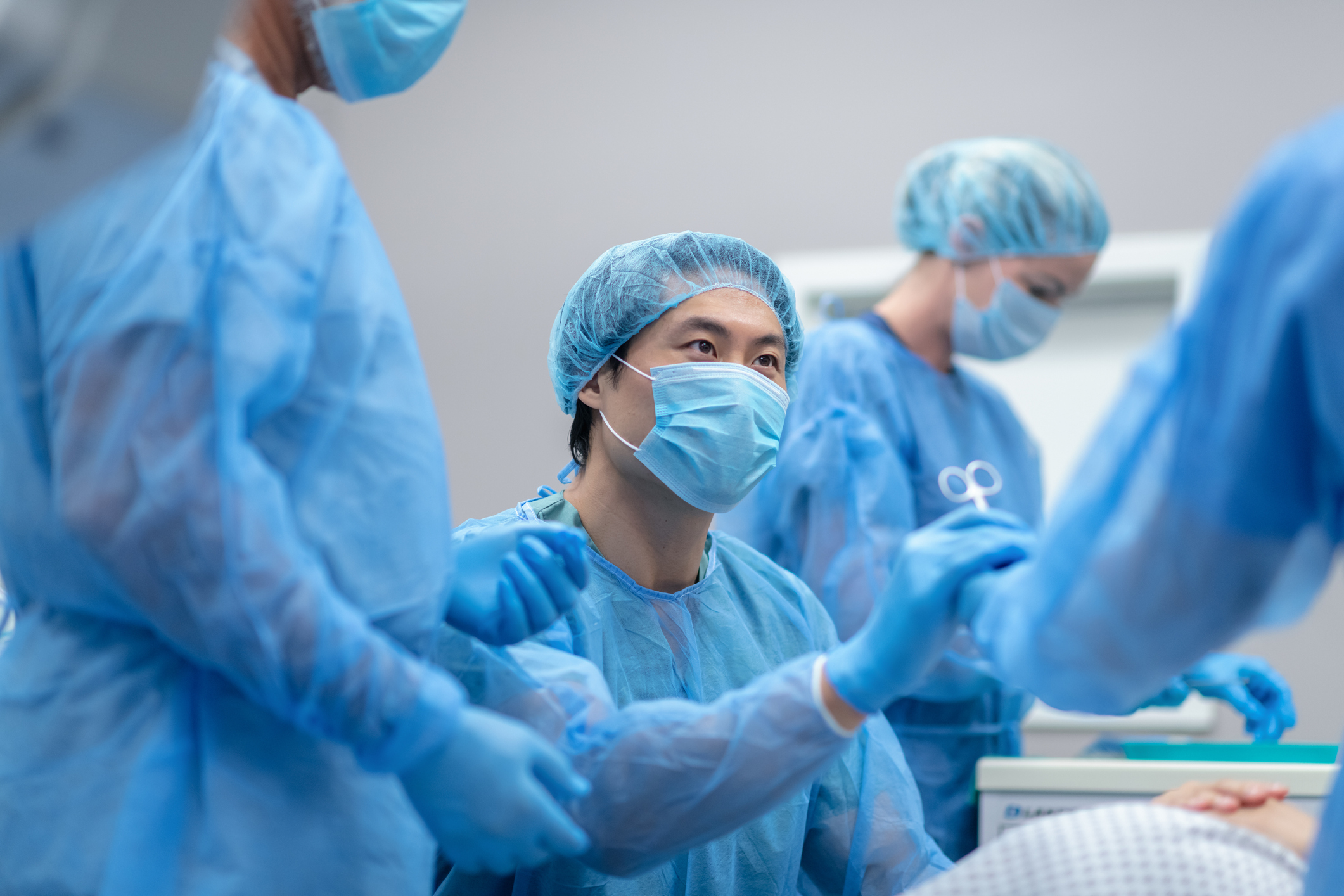
How to Prepare for the 2024 Core Surgical Training (CST) Interview
Doing well in the Core Surgical Training (CST) interview is very achievable, provided you put in sufficient preparation and practice. Starting your CST application early allows you more opportunity to get the points for your portfolio, leaving plenty of time to prepare for your MSRA and practise management and clinical scenarios for the interview. The template below is a basic outline of targets to set yourself when approaching CST interviews. We’ve also developed our Core Surgical Training Interview Question Bank to help you prepare for the big day!
FY1 year/ year before
This is the year to really maximise your portfolio in preparation for CST applications. Start by reading the scoring criteria in our portfolio section, and set realistic goals for what to achieve in the 12 months. Remember, CST applications open early into FY2, therefore most of the opportunities for scoring points will come in FY1 year.
Realistic CST portfolio goals for FY1 (more details in the portfolio section):
- Design, lead and implement change through a QI project (ideally surgically themed). The earlier you start this the better, as it will provide more opportunity to present at a conference (and gain maximum points!).
- Organise a teaching programme – there will be plenty of opportunities for teaching medical students on the wards.
- One poster/ oral presentation – if you ask around, there is more than likely an opportunity to get involved in a project that will lead to a presentation.
- FY1 rep role.
- Surgical Logbook – nearly every FY1 post will have a surgical rotation. This is the time to get into theatre and assist as much as possible. Build up the logbook, and you may even get the opportunity to carry out your own minor procedures.
- Become an affiliate member of RCS.
Extra goals
- Publish a paper – can be a case report, quality improvement project or full research article. Ask around for suitable academic supervisors, there should be plenty of projects available!
- Attend a teaching course – Receive application points by training in teaching. A Teach the Teacher Course should give you 1 point.
6 months to CST interview
When starting FY2, it is a good idea to begin building up the physical portfolio for interviews. Collect evidence from teaching and clinical activities, which can be entered into a professional and practical folder. Try to get this completed a few months prior to interviews taking place, as you do not want to be panicking over missing documents of evidence at this time.

Teach the Teacher Course by Medibuddy
This two-day CPD-accredited online course will earn you 12 CPD points on completion. It’s entirely flexible, so you can complete it in two days or multiple sessions over a longer period. On completion of the course, you’ll receive a certificate for your portfolio that is accredited for CCT, interviews and appraisals.
Find out moreWith 6 months to go, it is also a good idea to begin planning your preparation strategy. Identify resources you are going to use, study partners, and time you will set aside. Some suggested resources are below:
- ISC Medical – Medical Interviews: A relatively detailed book with extensive guidance on how to answer questions using a structured format. It also has model answers on portfolio questions, motivation questions and up-to-date topics. It is a great resource for learning how to structure answers, however many of the questions/ answers are not relevant to CST interviews or updated regularly, so keep this in mind if you only plan to use this resource.
- Online Question Banks: Essential for revision purposes in order to bolster the number of clinical/ management cases encountered. The Medibuddy CST Interview Question Bank has been produced by high scoring trainees, and is updated every year with new questions and in response to interview feedback. We have over 40 unique scenarios, with interview questions attached, for you to practise. We recommend practising out loud, and even videoing yourself, so you can see if you need to work on your delivery.
3-4 months to CST interview
Now comes the main preparation phase. Set yourself 1-2 hours of preparation per day, building up nearer to the interview, remember, you’ll also be preparing for your MSRA at this stage, so organisation and efficiency is key.
One way of structuring this preparation has been detailed below, but it is by no means the only way to successfully prepare:
- First 2 months: Familiarise yourself with the online question bank. Develop a broad idea of how to structure answers to each of the common questions, including examples from your own experience where appropriate. Read up on ATLS approach to trauma, along with common post-op clinical scenarios. Most of the theory should already be provided in model answers from the question bank.
- Final 2 months: Practise answering unseen questions with friends/ colleagues. Build an outline of your 3 minute answer to the presentation question. Become familiar with your portfolio, and how to navigate through it with ease, familiarising yourself with your achievements so you don’t forget any!
Many people spend the majority of their time preparing for the Clinical station, as there is a lot to learn for it. However, the Management station is often perceived as being difficult to revise for and can get neglected. It is true that there is less ‘content’ to learn for this station, however, to score highly, you will need to practise answering the common questions over and over again. We have updated our management station for 2024 with more questions, based on feedback from previous years.
With regard to the presentation – make sure it has a good structure (e.g. intro, point 1, point 2, point 3, summary) and it is under the time limit by a reasonable amount. They may start timing from the moment you enter the interview, so you could have up to 20 seconds less time than you thought! It is not so much the content that is important, but the way in which you deliver it.
MSRA Exam
The MSRA exam was introduced to the Core Surgical Training (CST) application in 2023, and will contribute to 10% of your final selection score. The top 1200 MSRA candidates will be invited to interview for CST, and with over 2500 applicants in total, that isn’t even half! This shows how key the MSRA is.
The exam is separated into the following two papers:
Professional Dilemmas Paper
This is a Situational Judgement Test (SJT) with 50 scenarios relating to challenging professional dilemmas. An example question taken from our adaptive MSRA question bank can be seen below:
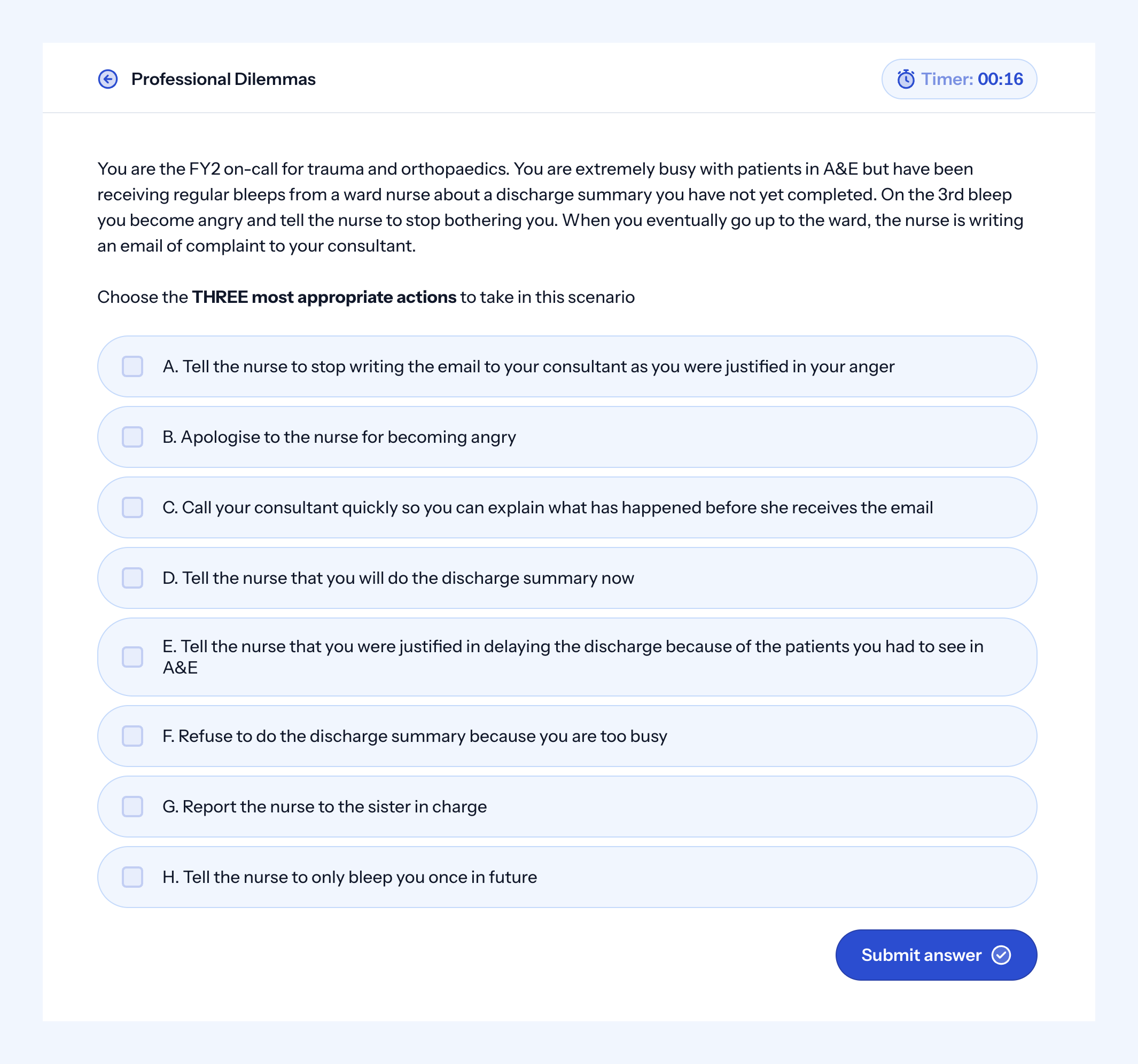
Professional Dilemmas Question
Clinical Problem Solving Paper
This includes 86 questions designed to assess your ability to apply clinical knowledge and make clinical decisions in the context of everyday practice. An example question from our MSRA question bank is shown below:
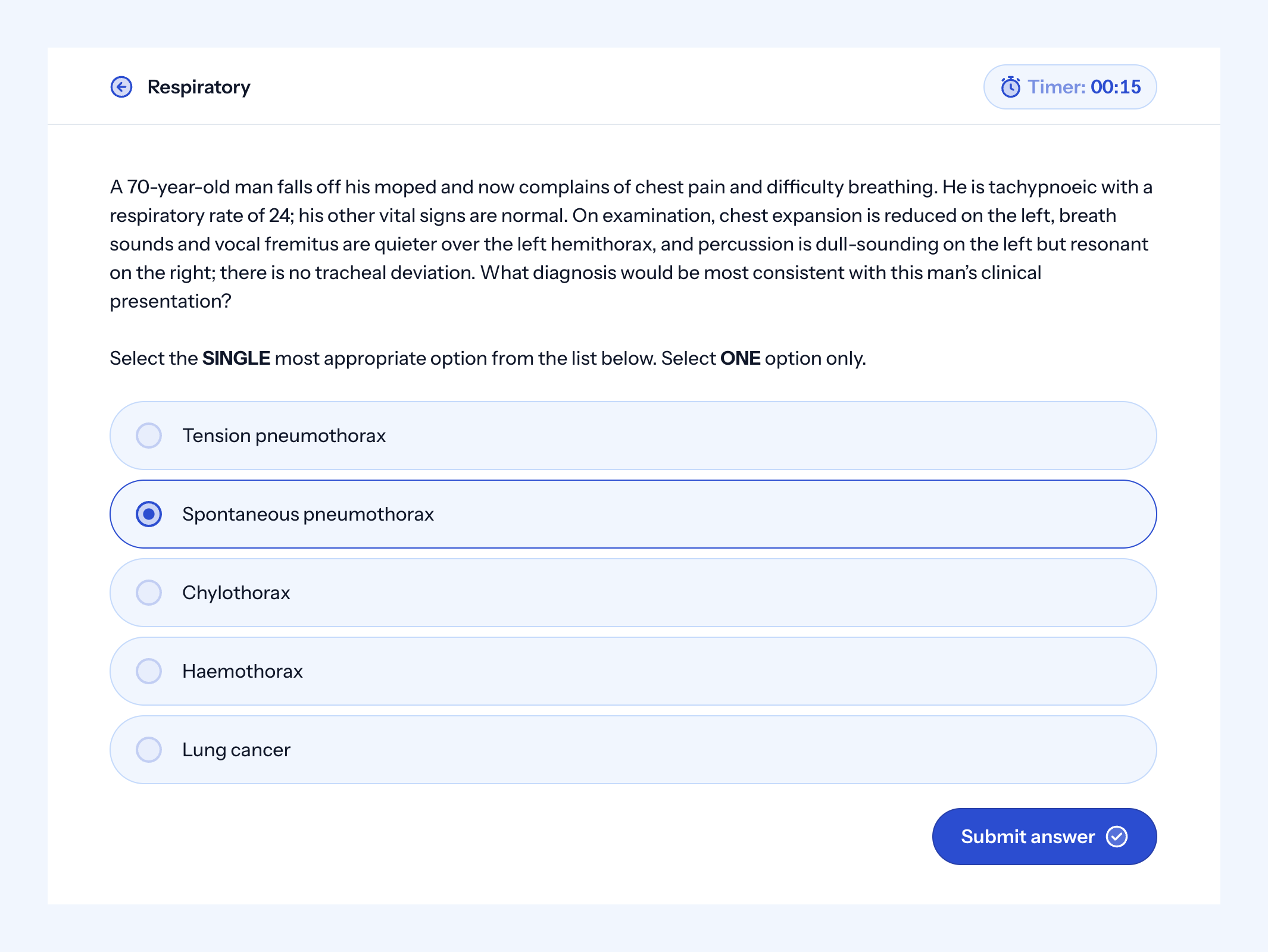
Clinical Problem Solving Question
Our MSRA question bank dashboard (below) shows a full list of the topics you’ll be assessed on within the exam.
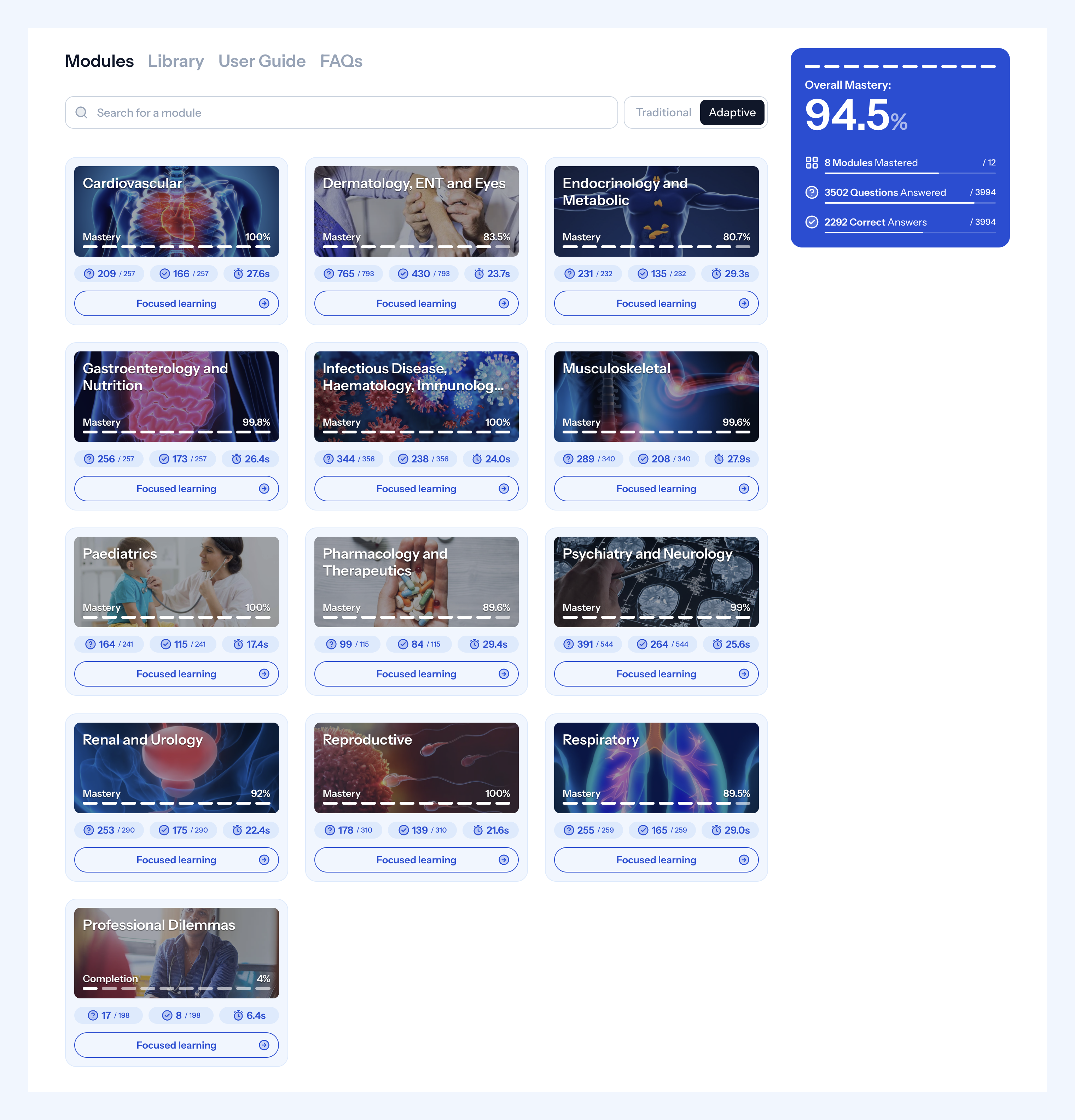
Medibuddy MSRA Question Bank Dashboard
You can check out our MSRA Complete Guide 2024 for more information about the exam and how to prepare, as it is vital you do well.
We also have a whole host of resources dedicated to the MSRA exam here, including our adaptive MSRA question bank with over 4000 practice questions; we have you covered!
Take your MSRA revision to the next level with our artificial intelligence powered, adaptive question bank
Our state of the art algorithms will help you progress faster than ever.
Core Surgical Training Interview day
Interviews will take place between Monday 19 February and Wednesday 28 February 2024 using the Qpercom video platform. Note – this is new for 2024; previously, the interview was held on Microsoft Teams. Make sure you test your microphone and camera well before your interview, to ensure everything works smoothly. Your time will be provided via Oriel. You should register for Qpercom when told to do so.
On the day of your interview, you should join the call 5 minutes before your interview time, where you will wait in a virtual lobby.
2024 CST Interview
The following is an overview of the key dates relating to the 2024 CST interview:
| Stage | Date |
|---|---|
| Applications open | 26 October 2023 |
| Applications close | 23 November 2023 |
| Invitations to MSRA no later than | 19 December 2023 |
| MSRA exam window | 4 – 16 January 2024 |
| Invites to interview | 8 February 2024 |
| Interview window | 19 – 28 February 2024 |
The interview will be held online, with a 10-minute management station and a 10-minute clinical station. When interviews were held face-to-face, prior to the COVID-19 pandemic, there was also a 10-minute portfolio station, however this now acts as a self-assessment making up 30% of your total score.
Regardless of the application process, interview structure and format changing over the years, Medibuddy will continue to provide updated advice and questions tailored to the recruitment requirements in our interview question bank.
Management Station
This interview segment is split into two parts.
- Part A: 3 minute presentation on a ‘seen’ topic, followed by 2 minutes of questions from interviewers regarding this presentation. You will receive this topic with your invite to interview.
- Part B: ‘Unseen’ management scenario, followed by questions. E.g. “You notice your registrar smells of alcohol, what would you do?”
Make sure you start preparing for the management station early. If you leave it to the last minute, even if your answers contain the right content, you won’t come across fluently and you won’t get the top marks.
This station is best prepared for in small groups with other candidates. The key to scoring highly is answering the questions concisely and bringing in your own examples. We would recommend writing down the examples that you would like to use and making sure you can describe them quickly.
You should be able to summarise examples such as the time you showed management/saw bad management etc. and then quickly move on to the reasons why it was good/bad management and what you learned from it.
When it comes to the management scenarios you should be practised in approaching each scenario using common frameworks such as SPIES, CAMP and STAR. You should get your fellow candidates to make up management scenarios for you, and then practise applying those frameworks.
Overall, it is perfectly achievable for anyone to get a Core Surgical Training Post, provided they put in the time to prepare for the interview. The clinical and management stations are worth two thirds of the marks, so even with a below average portfolio you can still score highly.
We have provided an example of a Management scenario from our question bank. When preparing for this section, we provide tips and examples of answers, and recommend that you apply these when putting together your own, personal answers.
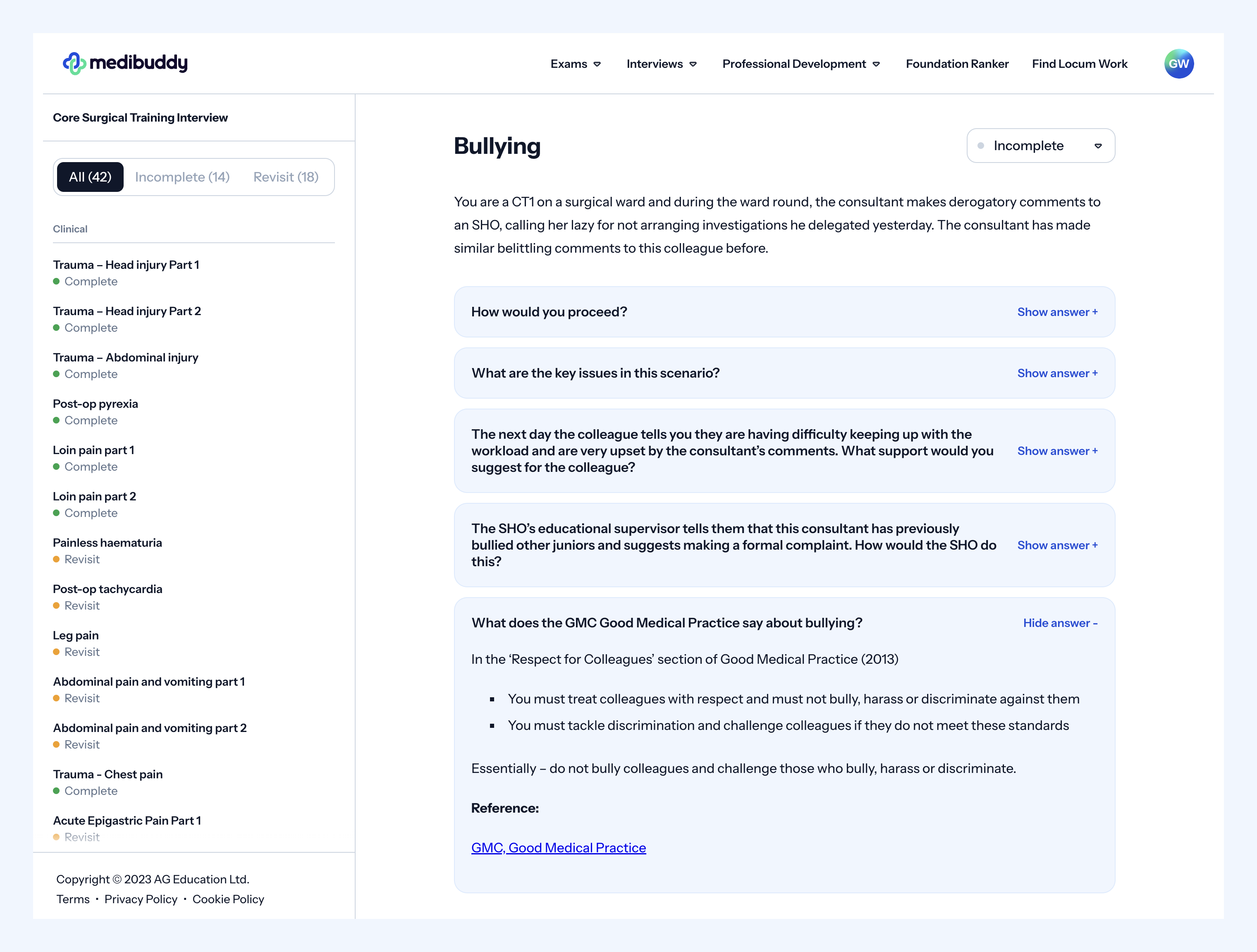
Clinical Station
The Clinical station lasts 10 minutes and you’ll usually be given two scenarios to work through. They tend to use similar topics each year and they are often based around emergency and post-operative scenarios. This interview station can be imagined as having two separate parts, although there is no break in between:
- Part A: Candidates are often given a short scenario to read – e.g. “a patient arrives at A&E with a deformed leg after falling off a ladder”. The interviewers will then proceed to ask a series of questions based on this scenario.
- Part B: The second part of this station will likely involve an ‘unseen’ scenario – e.g. the interviewers will tell you “a patient post-op laparoscopic cholecystectomy has spiked a temperature”, followed by a series of questions on investigation, differentials, etc.
When practising emergency cases, get into the habit early on of saying you would start by using an ABCDE approach (you’ll be sick of saying this by the end). As a rule, you can generally get enough marks to be deemed appointable by going through the ABCDE process logically and then escalating to a senior. It’s important that your answer is fluent and concise, as this will put the examiners at ease and allow you to quickly get onto the harder questions which will decide whether you get the top marks. Detailed run through of the ABCDE approach is unnecessary, so try and summaries each step concisely.
For post-op clinical scenarios, it is important you are familiar with common operations and their complications (all of which should be covered in suggested reading/ online question banks). The amount of revision you will need to do will depend on what jobs you have had in your foundation years. If you have done a general surgery or urology job you are likely to require less background reading than someone who hasn’t done any surgical jobs. Bear this in mind when planning your revision schedule.
The follow-up questions you get in the last 1-2 minutes of each scenario can be unpredictable and are often dependent on the examiners and their impression of you. This is why having a good understanding of the principles of all the key topics is important. You should have at least a working understanding of the aetiology, presentations, disease processes and management of all the conditions you revise.
Time is of the essence in this station, so with a small group of candidates, practise repeatedly answering questions about the core conditions in the run up to the interview.
Here is an example of a clinical scenario from our CST Interview Question Bank, so you know what to expect.
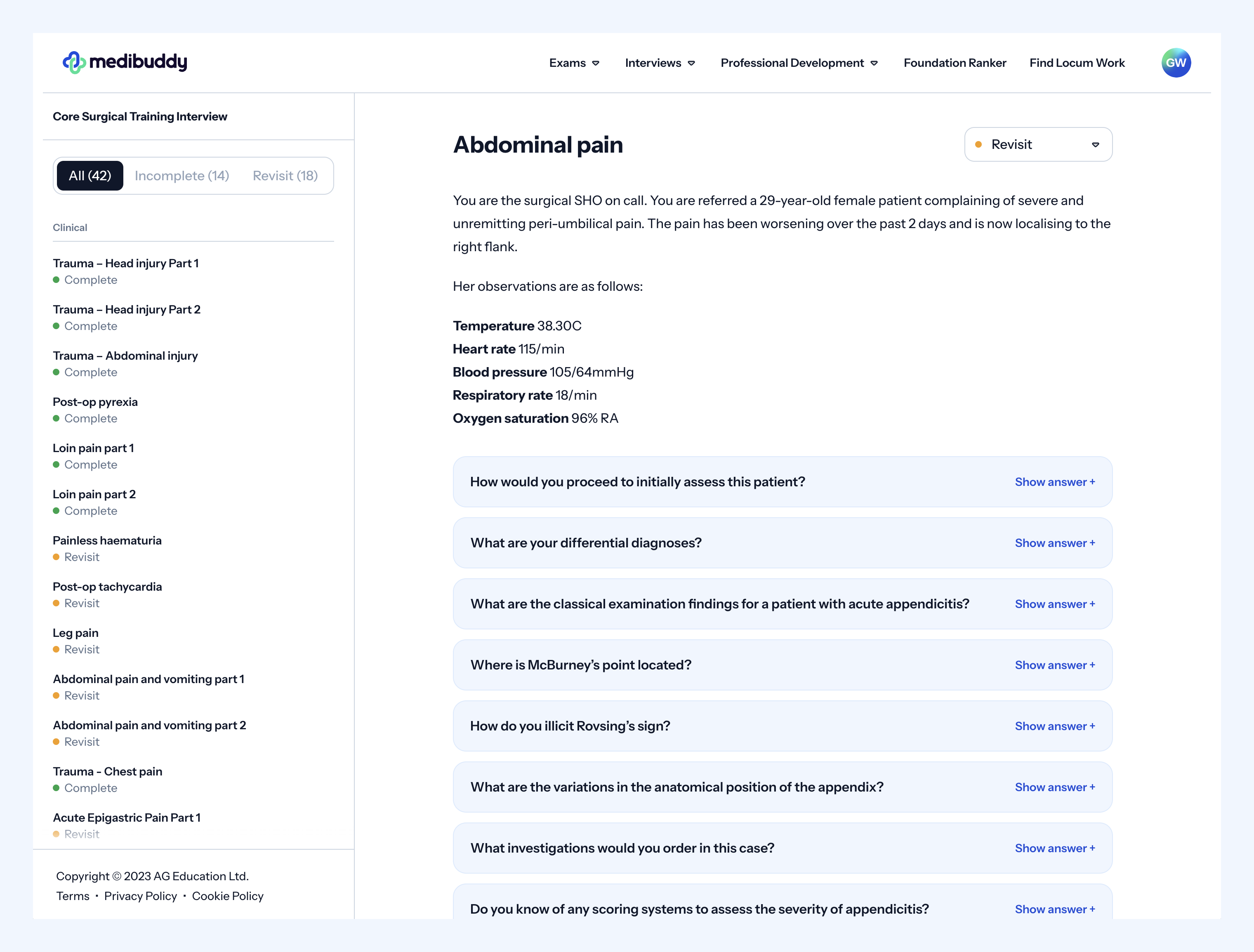
If you have any specific questions, please do get in touch. You can access our other interview resources in the Core Surgical Interview section of the website.
Good luck!
Further Reading
How to maximise points in the 2024 CST Interview Portfolio
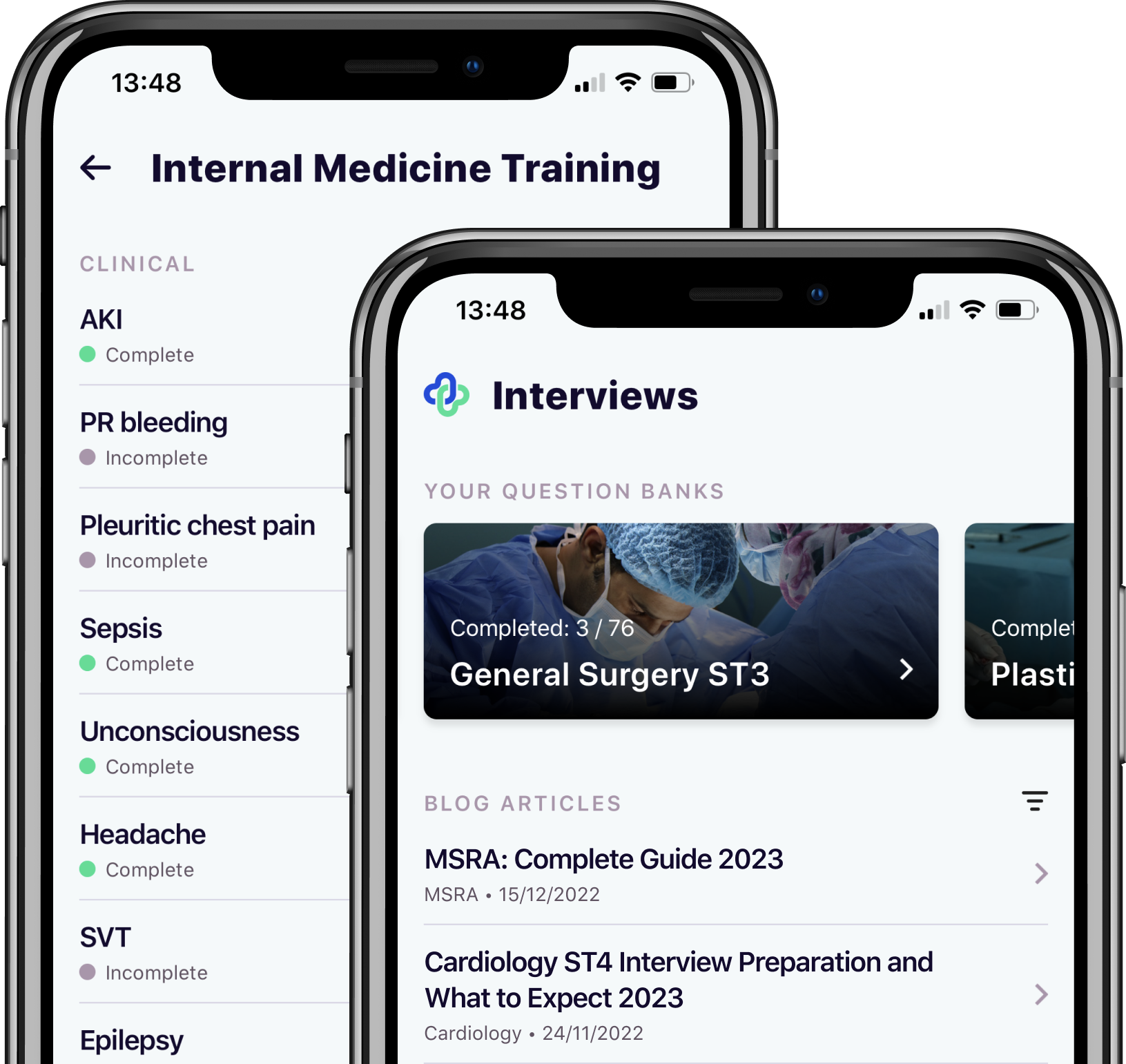
Take your subscriptions with you
Our mobile app allows you to access your interview and exam question banks wherever you are.


